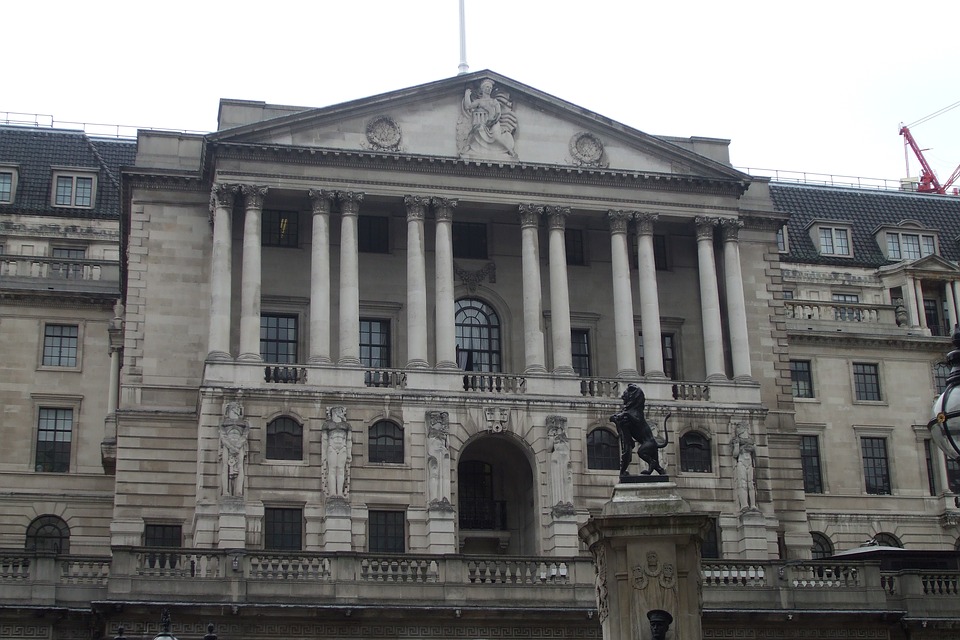Bank of England poised for big rate hike to tame inflation
But with inflation past the peak and forward looking data continuing to point to both sluggish growth and easing price pressures, the MPC could opt to slow the pace of hikes sooner rather than later. After more than a decade of record-low interest rates, the Bank of England began raising borrowing costs in December 2021, when its key rate stood at just 0.1 per cent.

- Country:
- United Kingdom
The Bank of England is expected to raise interest rates by as much as half a percentage point Thursday as it seeks to tame the double-digit inflation fuelling a cost-of-living crisis, public-sector strikes and fears of recession.
The move would push the UK's key rate to 4 per cent. Economists suggest this may be the last big rate increase for Britain's central bank, which has approved 10 consecutive hikes since a post-pandemic surge in the world economy and Russia's war in Ukraine drove inflation to 40-year highs.
The US Federal Reserve has already begun tapering its response, boosting its key rate by just a quarter-point on Wednesday. The European Central Bank, meanwhile, is expected to go big again, with a half-point hike on Thursday.
Optimism grew that rate increases may begin to tail off after UK inflation eased for a second straight month to 10.5 per cent in December, down from a peak of 11.1 per cent in October. That's still far higher than in the US and the 20-country eurozone, where inflation slowed to 6.5 per cent in December and 8.5 per cent in January, respectively.
With the cost of food and services rising and wage increases outstripping forecasts, most economists expect the Bank of England's Monetary Policy Committee, or MPC, to send the message that it is serious about fighting inflation. But it is likely to be a close decision, with some economists suggesting that the bank will opt for a quarter-point increase in its key rate as energy prices fall and concerns about sluggish economic growth take centre stage.
“We expect the MPC to raise Bank Rate to 4 per cent in February — likely its last forceful' hike in the tightening cycle,” Sanjay Raja, Deutsche Bank's chief UK economist, said in a note to clients. But “with inflation past the peak and forward looking data continuing to point to both sluggish growth and easing price pressures, the MPC could opt to slow the pace of hikes sooner rather than later.” After more than a decade of record-low interest rates, the Bank of England began raising borrowing costs in December 2021, when its key rate stood at just 0.1 per cent. The bank stepped up its fight against inflation last year, approving four big increases of a half-point or more since August to bring the rate to 3.5 per cent.
Inflation soared after Russia's invasion of Ukraine fuelled sharp increases in food and energy prices, leading to the UK's biggest drop in living standards since the 1950s. That has triggered a wave of strikes — including the biggest day of industrial action in more than a decade on Wednesday — as nurses, train drivers, border guards and teachers demand pay increases. The government is trying to prevent higher wages from causing a second round of domestically driven inflation that could be more difficult to tame.
Rising prices also are choking off economic growth and squeezing public finances as the government spends billions to help consumers and businesses hit by high energy costs this winter.
The International Monetary Fund this week said that the UK was on track to be the only major economy to shrink this year, even as the outlook for the rest of the world improves. The IMF said that the country's gross domestic product was likely to contract by 0.6 per cent in 2023, compared with a previous forecast of 0.3 per cent growth.
The Bank of England will release its own updated economic forecasts Thursday, with economists expecting a more optimistic picture than the IMF's as energy prices stabilise.
Wholesale natural gas prices in Britain are down 75 per cent from their peak in late August, which will translate into lower costs for businesses and consumers in coming months.
Martin Beck, chief economic adviser to economic forecasting group the EY Item Club, said that the central bank's November forecast for a record two-year recession now looks overly “downbeat.” “The significant fall in wholesale gas prices in the last few months means inflation should fall faster and the economy shrinks by less, and for less time, than the Bank of England anticipated three months ago,” he said.
(This story has not been edited by Devdiscourse staff and is auto-generated from a syndicated feed.)










